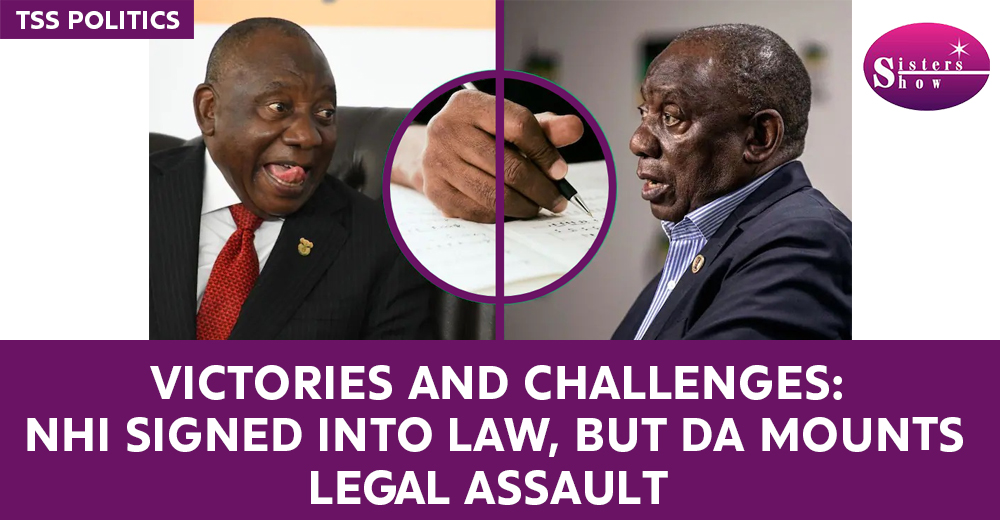
The Democratic Alliance (DA) is wasting no time in mounting a legal challenge against the National Health Insurance (NHI) Bill, signed into law by President Cyril Ramaphosa on Wednesday. This move comes amidst widespread criticism of the bill from the medical sector, political parties, academics, and industry experts.
DA Chief Whip, Siviwe Gwarube, announced their intention to file a lawsuit within 30 days, expressing deep concerns about the NHI’s centralized funding model. “We believe this will not only hinder access to healthcare but also open the door to corruption,” Gwarube stated, citing the recent Digital Vibes scandal that plagued the health department.
Gwarube fears the centralized NHI fund, managed by a single minister, will be susceptible to misappropriation, jeopardizing the quality of healthcare for South Africans.
Adding fuel to the fire, Dr. Larisse Prinsen, a public law lecturer at the University of Free State, sees strong legal grounds for challenging the NHI’s implementation. “Uncertainties and ambiguities” within the bill, coupled with potential violations of procedural fairness, are just some of the issues Dr. Prinsen highlights as potential legal arguments. Social justice organizations are also expected to join the fray, raising their own concerns in court.
The signing ceremony, held at the Union Buildings in Pretoria, marked the culmination of five years of heated debate and public hearings surrounding the NHI Bill, first tabled in 2019. Proponents of the bill believe it will usher in a new era of universal healthcare access, benefiting millions of patients, particularly the elderly, disadvantaged, and veterans.
President Ramaphosa hailed the signing as a “pivotal moment” for South Africa, a crucial step towards a more equitable future. The NHI, according to Ramaphosa, will achieve universal health coverage and address longstanding socio-economic inequalities.
However, with the DA’s legal challenge looming, the path towards realizing the NHI’s promises is likely to be a bumpy one. Only time will tell if the courts will side with the government’s vision of universal healthcare or the DA’s concerns about financial mismanagement and potential corruption.




